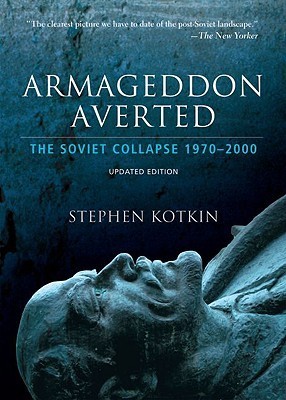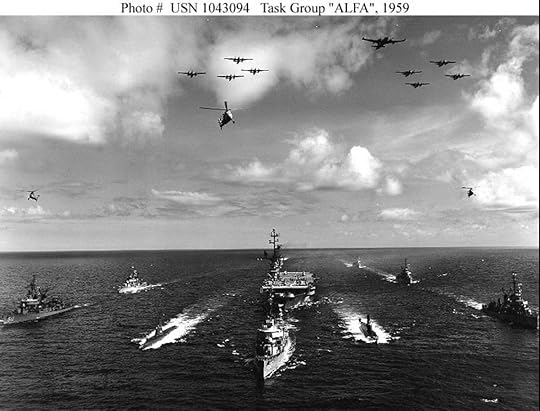(The English review is placed beneath the Russian one)
Книга поделена на две части или затрагивает две большие темы: последние годы существования СССР, в частности причины его распада и произошедшие перемены в России после окончания «советского эксперимента».
Переход России к рынку не шел и не мог идти по плану. Характерной его чертой стало хаотичное, повальное разграбление теми, кто оказался поближе к кормушке, всего оставшегося от советской эпохи. Корни этого процесса уходили в период до 1991-го, а ветви тянулись далеко в будущее.
<…>
Также во Франции отсутствовала кодифицированная в российской Конституции практика, согласно которой главы силовых министерств (МВД, Министерства обороны и ФСБ), а также министр иностранных дел подчинялись не премьеру, а непосредственно президенту — как в советские времена они подчинялись генсеку, а до революции — царю.
<…>
Ни одна страна, которой нефть приносила более трети экспортных доходов, так и не смогла совершить прочного перехода к настоящей демократии. Россия в основном стала тем, чем и должна была стать, — и будет оставаться такой вплоть до тех пор, пока альтернативные формы энергии не заменят в глобальном масштабе нефть и газ.
Автор отмечает, что многие, если не все проблемы связанные с неудачами в реформах 90-ых в новой России были вызваны советским наследием, однако никто это советское наследие и не пытался при Ельцине полностью уничтожить.
Советская система служила мощным щитом, ограждавшим страну от диктата мировой экономики. Но такая изоляция не могла продолжаться вечно, и когда она закончилась, ее последствия оказались особенно разрушительными. При этом, поскольку в основе коммунистического режима лежала государственная монополия на собственность, СССР принципиально отличался даже от авторитарных разновидностей исторического либерализма тем, что в стране просто не существовало ни законов, ни традиции правового обеспечения законных сделок между действующими в собственных интересах частными лицами. Конечно, в советском государстве было огромное количество законов, обширная система судов и юристов, которые помимо прочего предлагали защиту частным лицам, пострадавшим от действий властей. Однако бесчисленное множество распоряжений исполнительной власти, многие из которых были секретными, утверждали главенство административной нормы над законом, и исполнительная власть, подобно тому как она доминировала над властью законодательной, имела на руках все козыри, чтобы побить и любое судебное решение. Советским Союзом правили люди, а не законы.
Однако книга не о Ельцине и его псевдодемократических реформах (хотя этому тоже уделяется в книге много внимания), а о Горбачёве и о том, почему же казавшийся монолитом Советской Союз рухнул, при том, что репрессии в стране были крайне эффективными (оппозиции не существовало, а влияние диссидентов на общество было минимальным). Если коротко, то нежелание Горбачёва проливать кровь, нежелание проводить массовые репрессии, а также желание реформировать страну, и стали теми основными причинами, почему СССР распался. Горбачёв вовсе не желал распада СССР, а ровно наоборот, он хотел и дальше править, но править дальше как раньше становилось всё сложнее и сложнее именно по экономическим причинам. Как мне кажется, неудачи в экономике могли поспособствовать тому, что некоторые члены политбюро или некоторые представители элиты решились бы на государственный переворот и чтобы избежать этого Горбачёв и затеял ту политическую трансформацию, из-за которой власть КПСС, власть генерального секретаря ослабла, но усилилась власть региональных правительств и региональных глав.
Усиление Советов сопровождалось дальнейшим закулисным ослаблением власти партийного аппарата. Прекрасно помня, что именно партийные верхи ополчились против предыдущего реформатора, Хрущева, вынудив его «уйти на пенсию» в октябре 1964-го, и, очевидно, не вполне удовлетворенный исходом «дела Нины Андреевой», Горбачев вторгся в сферу влияния Лигачева. В сентябре 1988-го, перед началом кампании по выборам Съезда народных депутатов, он начал «реорганизацию» Секретариата ЦК. Ссылаясь на необходимость улучшить его работу, Горбачев создал целый ряд отдельных партийных комиссий, каждая из которых возглавлялась членом Политбюро. Неожиданно ушли в прошлое коллективные заседания Секретариата и отправляемый им контроль за деятельностью партийных комитетов по всей стране (будь то для воздействия на ход выборов или для организации заговора против генерального секретаря). Так, по-прежнему держась за свою ленинистскую веру в потенциал партийных масс, Горбачев сознательно лишил аппарат его могущества, а всего через 15 месяцев после этого вынужден был (в декабре 1990го) формально отменить монополию КПСС на власть.
Нерешительность в вопросах репрессий, это наверно ключевой фактор в событиях того периода. Если подумать, то до Горбачёва все правители Советского Союза спокойно шли на этот шаг, начиная с кровавого палача Ленина и Сталина и заканчивая Хрущёвым и Брежневым, один из которых подавил танками народные восстания в Чехословакии, а другой расстрелял мирную демонстрацию в Новочеркасске (Новочеркасский расстрел). Горбачев, похоже, не был готов к таким решительным шагам, и если это моё предположение верно, то тогда он единственный из советской системы кто не был готов применить такие меры. Интересно, что уже через несколько десятков лет и уже в новой России появится человек, который с лёгкостью отправит танки, самолёты и даже ракеты на подавления другой Пражской весны, только теперь её можно будет обозначить как Украинская весна. Путин действует точно так же как действовали Хрущёв, Брежнев и Сталин – нисколько не считаясь с людскими жизнями ради достижения своих политических целей. Что это? Советское влияние или обычная человеческая жестокость, которая присуща всем людям?
Но даже несмотря на все эти факторы, распад Союза не был неизбежным. В Индии в 1980-1990-х годах во имя сохранения целостности государства от рук центральных властей погибли многие тысячи сепаратистов, но на демократическую репутацию страны это почти — или совсем — не повлияло. Индийское правительство постоянно и недвусмысленно давало понять, что некую черту нельзя переступать, и без колебаний использовало силу против тех сепаратистских движений, которые игнорировали эти сигналы. Советское руководство при Горбачеве не тольк�� не смогло провести такую черту, но и само непреднамеренно способствовало распространению национализма. Нерешительное и ничего не решающее пролитие крови в Грузии в 1989 году и в Литве в начале 1991-го стало прекрасным оружием в руках сепаратистов, помогая им привлекать на свою сторону тех, кто все еще сомневался, и при этом ставило Москву в положение обороняющейся стороны, деморализуя КГБ и армию.
Интересно, что автор упоминает Китай и его трансформацию из маоистского Китая в современный Китай, который мы наблюдаем сегодня. В контексте сегодняшнего дня меня привлекли такие строки, которые могут стать ключевыми, если российский авторитаризм закончится на Украине, т.е. путинская авантюра приведёт к перевороту внутри страны. Просто как сказано в одной книге, авторитарные режимы сегодня очень устойчивы, но ровно до той поры пока они не начинают внешние военные интервенции, чем и является сегодня путинское СВО. В этом смысле пример Китая может быть очень поучительным (для авторитарных лидеров).
Китайское руководство, проявив большую дальновидность, обозначило соответствующий 20S компромисс словами «учиться жить с гегемоном». Сохранив свою империю, поглотив Тибет и другие территории во Внутренней Азии и продолжая занимать непоколебимую позицию по поводу «возвращения Тайваня», Китай ��ри этом следовал тому, что он сам называл «добрососедской политикой». Это означало, что Пекин воздерживается от вмешательства во внутренние дела соседей и предстает в их глазах как заслуживающий всяческого уважения двигатель региональной экономики.
Не правда ли, эти слова в книге 2001 года звучат очень актуально, чрезвычайно актуально для сегодняшнего дня и для сегодняшней России? Интересно так же, что если понять название книги «Предотвращенный Армагеддон» как то, что Горбачёв своим нежеланием идти по кровавому пути всех предыдущих правителей СССР и всех будущих правителей новой России, тем самым предотвратил югославский сценарий распада Советского Союза, который в этом случаи мог бы всё равно случится, но с большим, намного большим количеством жертв как это и произошло в Югославии. В этом смысле сегодня мы можем стать (а можем и не стать) свидетелями другого Армагеддона, который, в отличие от советского Армагеддона, может произойти именно потому, что Путин выбрал дорогу советских вождей, при этом, не имея тех ресурсов, что были у них. Произойдёт ли российский Армагеддон в таком случаи, покажет только время.
The book is divided into two parts and covers two major topics: the final years of the USSR, in particular, the reasons for its collapse, and the changes that took place in Russia after the end of the “Soviet experiment.”
(all quotations have been translated from Russian)
Russia's transition to a market economy did not go according to plan, nor could it have done so. It was characterized by the chaotic, widespread plundering of everything left over from the Soviet era by those who found themselves closest to the trough. The roots of this process went back to the period before 1991, and its branches stretched far into the future.
<...>
France also lacked the practice codified in the Russian Constitution, according to which the heads of the security ministries (the Ministry of Internal Affairs, the Ministry of Defense, and the FSB), as well as the Minister of Foreign Affairs, reported not to the prime minister, but directly to the president — just as in Soviet times they reported to the general secretary, and before the revolution — to the tsar.
<...>
No country that derived more than a third of its export revenues from oil has ever managed to make a lasting transition to true democracy. Russia has largely become what it was meant to be, and will remain so until alternative forms of energy replace oil and gas on a global scale.
The author notes that many, if not all, of the problems associated with the failures of the 1990s reforms in the new Russia were caused by the Soviet legacy, but no one under Yeltsin attempted to completely destroy this Soviet legacy.
The Soviet system served as a powerful shield, protecting the country from the dictates of the global economy. But such isolation could not last forever, and when it ended, the consequences were particularly devastating. At the same time, since the communist regime was based on a state monopoly on property, the USSR differed fundamentally even from authoritarian varieties of historical liberalism in that the country simply had no laws or traditions of legal protection for legitimate transactions between private individuals acting in their own interests. Of course, the Soviet state had a huge number of laws and an extensive system of courts and lawyers who, among other things, offered protection to individuals who had suffered from the actions of the authorities. However, countless executive orders, many of which were secret, asserted the supremacy of administrative norms over the law, and the executive branch, just as it dominated the legislative branch, had all the trump cards in its hands to defeat any court decision. The Soviet Union was ruled by people, not laws.
However, the book is not about Yeltsin and his pseudo-democratic reforms (although this is also given a lot of attention in the book), but about Gorbachev and why the seemingly monolithic Soviet Union collapsed, despite the fact that repression in the country was extremely effective (there was no opposition, and dissidents had minimal influence on society). In short, Gorbachev's unwillingness to shed blood, his unwillingness to carry out mass repression, and his desire to reform the country were the main reasons why the USSR collapsed. Gorbachev did not want the USSR to collapse at all; on the contrary, he wanted to continue ruling, but it was becoming increasingly difficult to do so for economic reasons. It seems to me that economic failures could have contributed to some members of the Politburo or some representatives of the elite deciding to stage a coup d'état, and to avoid this, Gorbachev initiated the political transformation that weakened the power of the CPSU and the general secretary, but strengthened the power of regional governments and regional leaders.
The strengthening of the Soviets was accompanied by a further behind-the-scenes weakening of the party apparatus's power. Well aware that it was the party leadership that had turned against the previous reformer, Khrushchev, forcing him to “retire” in October 1964, and obviously not entirely satisfied with the outcome of the “Nina Andreyeva case,” Gorbachev encroached on Ligachev's sphere of influence. In September 1988, before the start of the campaign for the election of the Congress of People's Deputies, he began “reorganizing” the Secretariat of the Central Committee. Citing the need to improve its work, Gorbachev created a number of separate party commissions, each headed by a member of the Politburo. Suddenly, the collective meetings of the Secretariat and its control over the activities of party committees throughout the country (whether to influence the course of elections or to organize a conspiracy against the general secretary) became a thing of the past. Thus, still clinging to his Leninist belief in the potential of the party masses, Gorbachev deliberately stripped the apparatus of its power, and just 15 months later (in December 1990) was forced to formally abolish the CPSU's monopoly on power.
Indecisiveness in matters of repression was probably the key factor in the events of that period. If you think about it, before Gorbachev, all the rulers of the Soviet Union calmly took this step, starting with the bloody executioners Lenin and Stalin and ending with Khrushchev and Brezhnev, one of whom suppressed popular uprisings in Czechoslovakia with tanks, and the other shot a peaceful demonstration in Novocherkassk (the Novocherkassk massacre). Gorbachev, it seems, was not ready for such decisive steps, and if my assumption is correct, then he was the only one in the Soviet system who was not prepared to take such measures. It is interesting that in a few decades, in a new Russia, a man will appear who will easily send tanks, aircraft, and even missiles to suppress another Prague Spring, only now it will be called the Ukrainian Spring. Putin acts in exactly the same way as Khrushchev, Brezhnev, and Stalin did—without any regard for human lives in order to achieve his political goals. What is this? Soviet influence or ordinary human cruelty, which is inherent in all people?
But even with all these factors, the breakup of the Union wasn't inevitable. In India in the 1980s and 1990s, thousands of separatists died at the hands of the central government in the name of keeping the country together, but this had little or no impact on the country's democratic reputation. The Indian government consistently and unequivocally made it clear that certain lines could not be crossed, and did not hesitate to use force against those separatist movements that ignored these signals. The Soviet leadership under Gorbachev not only failed to draw such a line but also inadvertently contributed to the spread of nationalism. The indecisive and inconclusive bloodshed in Georgia in 1989 and in Lithuania in early 1991 became a powerful weapon in the hands of the separatists, helping them to win over those who were still undecided, while putting Moscow on the defensive and demoralizing the KGB and the army.
It is interesting that the author mentions China and its transformation from Maoist China to the modern China we see today. In today's context, I was caught by these lines, which could be key if Russian authoritarianism comes to an end in Ukraine, meaning if Putin's adventure leads to a coup inside the country. As stated in one book, authoritarian regimes today are very stable, but only until they begin external military interventions, which is what Putin's SVO (SMO) is today. In this sense, the example of China can be very instructive (for authoritarian leaders).
The Chinese leadership, showing great foresight, described the corresponding 20S compromise as “learning to live with the hegemon.” Having preserved its empire, absorbed Tibet and other territories in Inner Asia, and continuing to take an uncompromising stance on the “return of Taiwan,” China followed what it called a “good-neighbor policy.” This meant that Beijing refrained from interfering in the internal affairs of its neighbors and presented itself to them as a highly respectable engine of the regional economy.
Isn't it true that these words in the 2001 book sound very relevant, extremely relevant to today and to today's Russia? It is also interesting that if we understand the title of the book, “Armageddon Averted,” as meaning that Gorbachev, by his unwillingness to follow the bloody path of all previous rulers of the USSR and all future rulers of the new Russia, thereby prevented the Yugoslavian scenario of the collapse of the Soviet Union, which in this case could still have happened, but with a much, much greater number of victims, as happened in Yugoslavia. In this sense, today we may (or may not) witness another Armageddon, which, unlike the Soviet Armageddon, may occur precisely because Putin has chosen the path of the Soviet leaders, without having the resources that they had. Only time will tell whether a Russian Armageddon will occur in this case.




